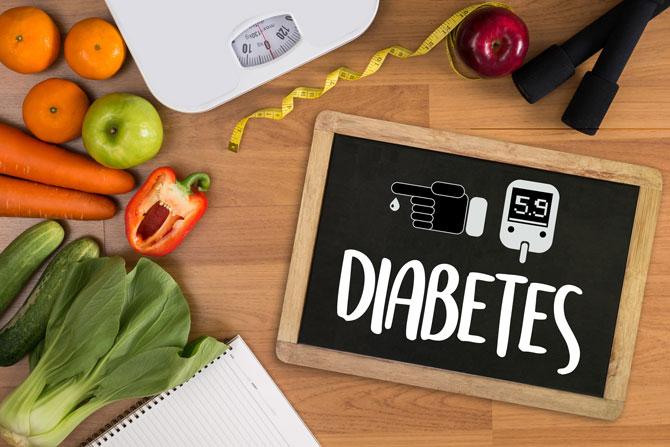Long standing diabetes increases the chances of kidney damage. When the blood vessels in the kidneys are injured, your kidneys cannot clean your blood properly

 Representational picture
Representational picture
ADVERTISEMENT
Diabetes is a disease in which your body does not make enough insulin or cannot use normal amounts of insulin properly. Insulin is a hormone that regulates the amount of sugar in your blood. A high blood sugar level affects many parts of your body right from eyes to your feet.
The main job of the kidneys is to filter wastes and extra water out of your blood to make urine. The kidneys also help to control blood pressure and make hormones that body needs to stay healthy. Long standing diabetes increases the chances of kidney damage. When the blood vessels in the kidneys are injured, your kidneys cannot clean your blood properly. When your kidneys are damaged, they can’t filter blood like they should, which can cause wastes to build up in your body. Your body will retain more water and salt than it should, which can result in weight gain and pedal edema (ankle swelling). You may have proteinuria (protein in urine). Diabetes is one of the leading cause of kidney disease other than high blood pressure and painkillers (nsaids and Cox 2 inhibitors)
Many people with diabetic kidney disease may not have any symptoms. The only way is to get your kidneys checked by blood (renal profile with electrolytes) and urine checked. People with diabetes should be screened regularly for kidney disease at least once a year.
Dr Roshani Gadge, Diabetologist consultant, Gadge Diabetes Centre lists out tips for diabetic patients for reducing the risk of kidney disease.
- Control your diabetes: keeping the blood sugars levels and Hba1c (3 months average sugar) under control helps in preventing or delay disease.
- Control blood pressure: Every diabetic patient should get checked his/her blood pressure with their doctor in every visit. If there is consistent high blood pressure you may require medicines.
- No intake of alcohol/tobacco/smoking
- Do not take NSAIDS & COX 2 INHIBITORS: if you are suffering from kidney disease or renal insufficiency, it is necessary to inform all your doctor(dentist, orthopedic, family doctor etc) about your creatinine levels, so that according to that they can prescribe the medicines.
- Do not apply emulsion gels or sprays which contain NSAIDS as they get absorbed into skin,
- Always consult your doctor before taking any new medicines.
- Avoid dehydration (loose motion or vomiting): consult your doctor immediately if you suffer from dehydration.
- Limit the amount salt in your diet.
- Consult a proper dietician for healthy and balance diet.
- Regular checkup (creatinine levels every 6 months and renal profile with electrolytes once a year)
- Eye examination: Diabetic patients having chronic kidney disease should get checked their retina examination every year. Diabetic Kidney patients are more prone to have retinopathy.
Also Read: 'Diabetes Drug Can Cut Build-Up Of Liver Fat'
Catch up on all the latest Crime, National, International and Hatke news here. Also download the new mid-day Android and iOS apps to get latest updates
 Subscribe today by clicking the link and stay updated with the latest news!" Click here!
Subscribe today by clicking the link and stay updated with the latest news!" Click here!






